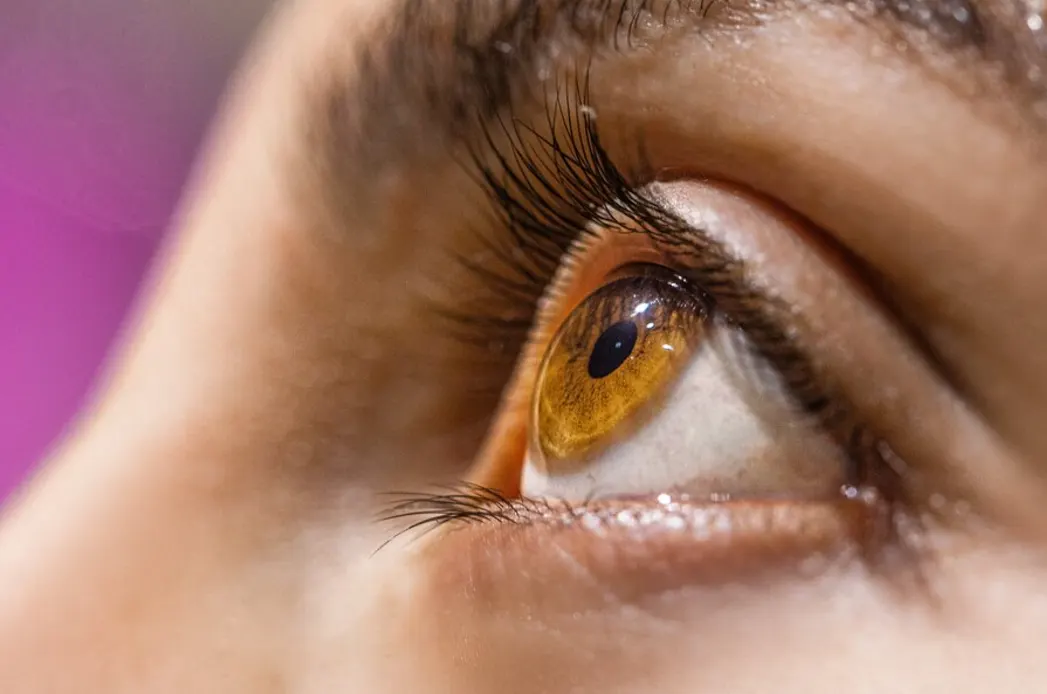An Emotional Journey


Emotional Well-Being and Lifestyle Adjustments with an Ocular Prosthesis
Facing the need for a prosthetic eye is often a life-changing experience. Whether due to trauma, illness, or congenital conditions, the journey to adjust to an ocular prosthesis involves both physical and emotional challenges.
As a board-certified ocularist, we understand that the transition to wearing an ocular prosthesis can bring up a range of emotions—from feelings of loss, self-consciousness, or frustration to concerns about how others might perceive you. It’s important to recognize that these emotional responses are natural and part of the healing process.
You are not alone in this journey, and we are here to help guide you with empathy, support, and care.
Common Emotional Experiences
It’s completely normal to experience a variety of emotions during this process. Many patients report feelings of grief or loss after the removal of an eye, particularly if it was due to trauma or disease. The sense of change, the feeling of being “different,” or the fear of being judged can often be overwhelming. These emotions are valid and deserve attention.
For those who lose an eye due to trauma or accident, there may also be a psychological toll related to the event itself. Feelings of anger, shock, anxiety, or even post-traumatic stress can be common as individuals adjust not just to the physical change, but to the emotional impact of the incident.
For children and their families, the experience can be especially challenging. Parents may worry about their child’s emotional well-being, self-esteem, and how they will navigate social situations. Children may feel isolated, embarrassed, or worried about how their peers will react. The process of healing, adjusting, and building confidence takes time, but with the right support and resources, these feelings can be managed.
Coping Mechanisms and Strategies
Adjusting to a prosthetic eye involves more than just learning how to care for it—it also requires emotional adaptation. Below are some helpful coping strategies that many patients find beneficial:
1. Open Communication
Talking openly about feelings and experiences can be incredibly healing. Whether it’s with family, friends, or a counselor, discussing your emotions helps reduce isolation and fosters understanding. For parents, encouraging children to express their concerns, worries, and questions about their prosthetic eye is an essential step toward emotional healing.
2. Peer Support and Community
Connecting with others who are going through similar experiences can provide comfort and reassurance. Support groups, both in-person and online, can help reduce feelings of isolation and provide a sense of belonging. Hearing other people’s stories, learning about their journeys, and sharing tips and advice can be immensely helpful.
3. Professional Counseling
Sometimes the emotional challenges are more complex and require additional support. A counselor or therapist who specializes in trauma, body image, or chronic illness can provide the tools and space to process emotions, work through grief, and address any anxiety or depression. For children, a child psychologist experienced with helping children adjust to physical changes can be especially valuable.
4. Focus on the Positive Aspects
Focusing on the benefits of an ocular prosthesis can be empowering. It not only restores the natural appearance of the eye but also helps improve comfort and facial symmetry. Many patients find strength in recognizing that their prosthesis is a tool to help them regain normalcy in daily activities. Keeping a positive outlook on the new opportunities for self-expression and connection with others can be a source of strength.
5. Engage in Activities that Bring Joy
While adjusting to a prosthetic eye may take time, it’s important to maintain engagement in hobbies, social activities, and other aspects of life that bring happiness and fulfillment. For children, participating in sports or extracurricular activities, as well as spending time with friends, can help reinforce a sense of normalcy.
What to Expect
The process of receiving an ocular prosthesis is typically a multi-step journey that can span several weeks. After the initial fitting, you may need a few follow-up appointments to ensure that the prosthesis fits comfortably and functions properly. It’s important to remember that some adjustments to the fit or appearance may be necessary in the beginning. This is a standard part of the process and allows us to achieve the most natural, comfortable result for you.
Initially, wearing the prosthesis may feel unusual, and it may take time for you to get used to the sensation and the appearance. It’s normal to have concerns about how others will perceive you, but rest assured that the prosthesis is designed to look as natural as possible, blending seamlessly with the remaining eye. Over time, you will likely grow more accustomed to it and feel more confident.
For children, the adjustment period can vary, depending on their age and understanding of the situation. It may take some time for them to feel comfortable with the prosthesis, and their feelings can evolve as they grow older. Parents play an important role in helping their children navigate their emotions and feel confident in their appearance.
Lifestyle Adjustments
Adjusting to life with a prosthetic eye also means making some small changes to your daily routine. For example, it’s important to practice proper care and cleaning of the prosthesis to maintain both its appearance and your eye socket health. You may need to schedule regular visits to your ocularist to ensure the prosthesis continues to fit well and address any necessary updates.
While you can continue most of your usual activities, including work, school, and hobbies, there are a few considerations to keep in mind:
- Eye Protection: Be mindful of activities that could lead to irritation or injury to your eye socket. Protective eyewear may be necessary during certain activities like sports or when handling chemicals.
- Makeup and Skin Care: When applying makeup, it’s important to use gentle, non-abrasive products to avoid damaging the prosthesis. Regular moisturizing of the eye socket area is also important to keep the skin healthy.
- Regular Check-ups: Your ocularist will recommend regular follow-up visits to ensure the prosthesis fits properly and that your eye socket remains healthy.
Optimism for the Future
While the journey to adjust to a prosthetic eye can be emotionally and physically challenging, it’s important to focus on the possibilities for a bright future. Over time, most patients find that their confidence grows as they become more accustomed to the prosthesis and as their appearance feels more natural. With the right emotional support, self-care practices, and regular care of the prosthesis, many patients are able to regain a sense of normalcy and go on to live full, active lives.
For children, the process of adjustment can lead to emotional growth, resilience, and a deeper understanding of their own strength. As they grow older, they will likely become more confident in their appearance and their ability to navigate social situations. With the support of family, friends, and professionals, the experience of wearing an ocular prosthesis can ultimately foster self-acceptance and a positive outlook on life.
You are not alone. The journey may have its difficult moments, but there is hope, healing, and a path forward. As technology advances and the field of ocular prosthetics continues to improve, the future is brighter than ever. Together, we will ensure that you are equipped with the tools, support, and confidence to embrace this next chapter of your life.

